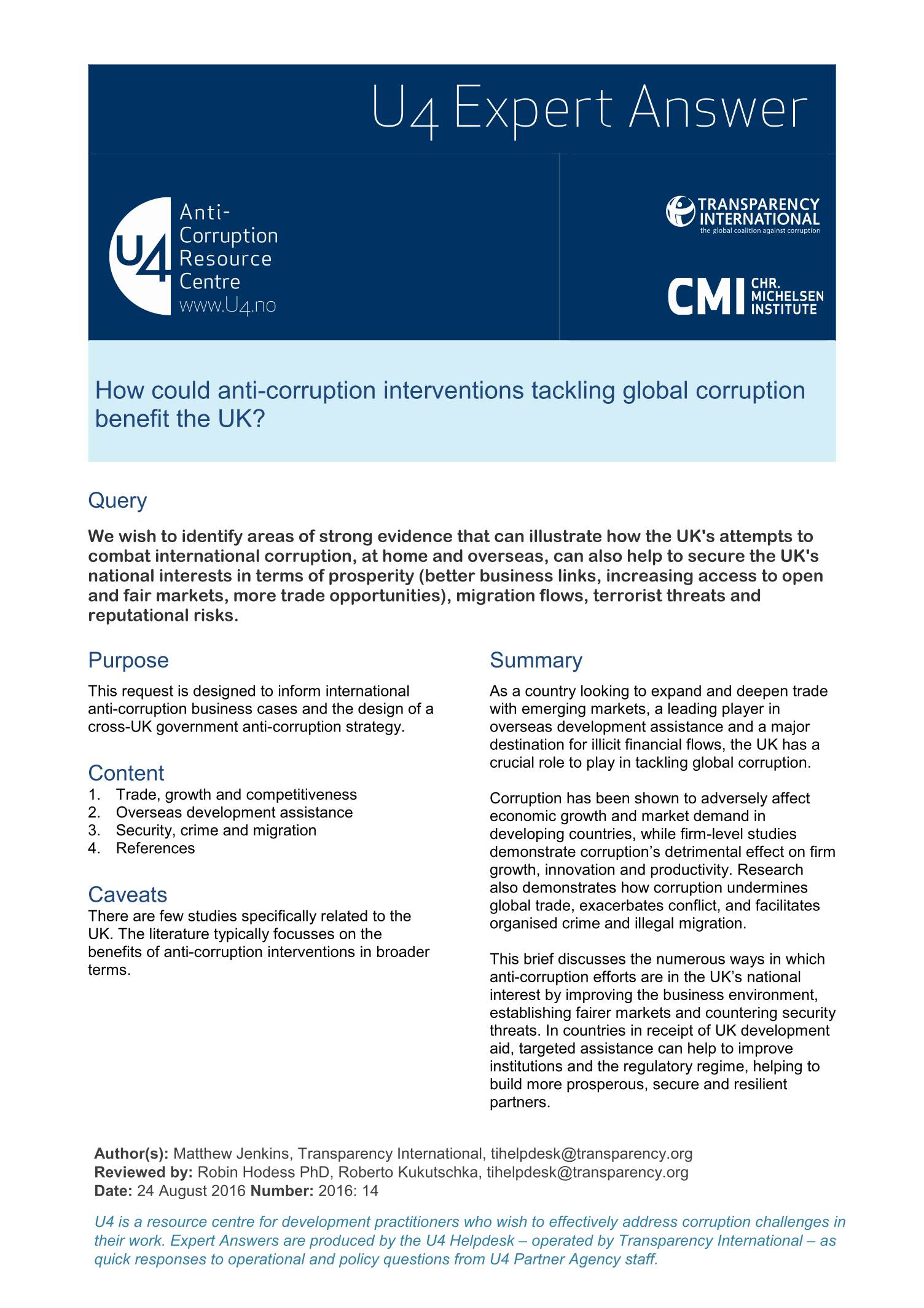U4 Helpdesk Answer
How could anti-corruption interventions tackling global corruption benefit the UK?
As a country looking to expand and deepen trade with emerging markets, a leading player in overseas development assistance and a major destination for illicit financial flows, the UK has a crucial role to play in tackling global corruption.
Corruption has been shown to adversely affect economic growth and market demand in developing countries, while firm-level studies demonstrate corruption’s detrimental effect on firm growth, innovation and productivity. Research also demonstrates how corruption undermines global trade, exacerbates conflict, and facilitates organised crime and illegal migration.
This brief discusses the numerous ways in which anti-corruption efforts are in the UK’s national interest by improving the business environment, establishing fairer markets and countering security threats. In countries in receipt of UK development aid, targeted assistance can help to improve institutions and the regulatory regime, helping to build more prosperous, secure and resilient partners.

Cite this publication
Jenkins, M. (2016) How could anti-corruption interventions tackling global corruption benefit the UK? U4 Expert Answer 2016:14
Disclaimer
All views in this text are the author(s)’, and may differ from the U4 partner agencies’ policies.
This work is licenced under a Creative Commons Attribution-NonCommercial-NoDerivatives 4.0 International licence (CC BY-NC-ND 4.0)

